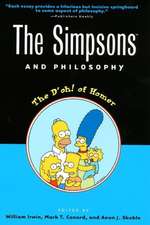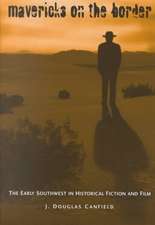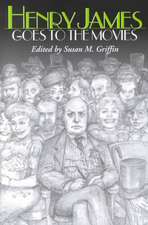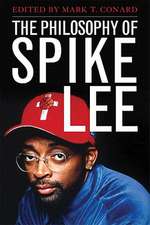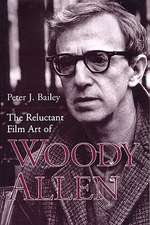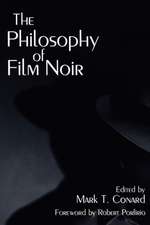The Philosophy of Neo-Noir: Philosophy of Popular Culture
Editat de Mark T. Conarden Limba Engleză Paperback – 23 iun 2011
Film noir is a classic genre characterized by visual elements such as tilted camera angles, skewed scene compositions, and an interplay between darkness and light. Common motifs include crime and punishment, the upheaval of traditional moral values, and a pessimistic stance on the meaning of life and on the place of humankind in the universe. Spanning the 1940s and 1950s, the classic film noir era saw the release of many of Hollywood's best-loved studies of shady characters and shadowy underworlds, including Double Indemnity, The Big Sleep, Touch of Evil, and The Maltese Falcon. Neo-noir is a somewhat loosely defined genre of films produced after the classic noir era that display the visual or thematic hallmarks of the noir sensibility. The essays collected in The Philosophy of Neo-Noir explore the philosophical implications of neo-noir touchstones such as Blade Runner, Chinatown, Reservoir Dogs, Memento, and the films of the Coen brothers. Through the lens of philosophy, Mark T. Conard and the contributors examine previously obscure layers of meaning in these challenging films. The contributors also consider these neo-noir films as a means of addressing philosophical questions about guilt, redemption, the essence of human nature, and problems of knowledge, memory and identity. In the neo-noir universe, the lines between right and wrong and good and evil are blurred, and the detective and the criminal frequently mirror each other's most debilitating personality traits. The neo-noir detective -- more antihero than hero -- is frequently a morally compromised and spiritually shaken individual whose pursuit of a criminal masks the search for lost or unattainable aspects of the self. Conard argues that the films discussed in The Philosophy of Neo-Noir convey ambiguity, disillusionment, and disorientation more effectively than even the most iconic films of the classic noir era. Able to self-consciously draw upon noir conventions and simultaneously subvert them, neo-noir directors push beyond the earlier genre's limitations and open new paths of cinematic and philosophical exploration.
| Toate formatele și edițiile | Preț | Express |
|---|---|---|
| Paperback (1) | 178.78 lei 6-8 săpt. | |
| University Press of Kentucky – 23 iun 2011 | 178.78 lei 6-8 săpt. | |
| Hardback (1) | 445.48 lei 6-8 săpt. | |
| University Press of Kentucky – 16 sep 2010 | 445.48 lei 6-8 săpt. |
Din seria Philosophy of Popular Culture
-
 Preț: 186.84 lei
Preț: 186.84 lei -
 Preț: 233.98 lei
Preț: 233.98 lei -
 Preț: 211.85 lei
Preț: 211.85 lei -
 Preț: 213.59 lei
Preț: 213.59 lei -
 Preț: 448.93 lei
Preț: 448.93 lei -
 Preț: 180.47 lei
Preț: 180.47 lei -
 Preț: 215.71 lei
Preț: 215.71 lei -
 Preț: 268.43 lei
Preț: 268.43 lei -
 Preț: 308.33 lei
Preț: 308.33 lei -
 Preț: 234.73 lei
Preț: 234.73 lei -
 Preț: 271.53 lei
Preț: 271.53 lei -
 Preț: 266.90 lei
Preț: 266.90 lei -
 Preț: 182.61 lei
Preț: 182.61 lei -
 Preț: 313.73 lei
Preț: 313.73 lei -
 Preț: 272.88 lei
Preț: 272.88 lei -
 Preț: 281.93 lei
Preț: 281.93 lei -
 Preț: 342.46 lei
Preț: 342.46 lei -
 Preț: 348.61 lei
Preț: 348.61 lei -
 Preț: 217.83 lei
Preț: 217.83 lei -
 Preț: 266.52 lei
Preț: 266.52 lei -
 Preț: 271.53 lei
Preț: 271.53 lei -
 Preț: 312.59 lei
Preț: 312.59 lei -
 Preț: 282.60 lei
Preț: 282.60 lei -
 Preț: 268.43 lei
Preț: 268.43 lei -
 Preț: 373.86 lei
Preț: 373.86 lei -
 Preț: 282.29 lei
Preț: 282.29 lei -
 Preț: 181.66 lei
Preț: 181.66 lei - 13%
 Preț: 345.91 lei
Preț: 345.91 lei - 13%
 Preț: 344.53 lei
Preț: 344.53 lei - 32%
 Preț: 135.62 lei
Preț: 135.62 lei -
 Preț: 318.13 lei
Preț: 318.13 lei
Preț: 178.78 lei
Nou
34.21€ • 35.59$ • 28.25£
Carte tipărită la comandă
Livrare economică 14-28 aprilie
Specificații
ISBN-10: 081319217X
Pagini: 213
Dimensiuni: 152 x 226 x 15 mm
Greutate: 0.32 kg
Editura: University Press of Kentucky
Seria Philosophy of Popular Culture
Locul publicării:United States




